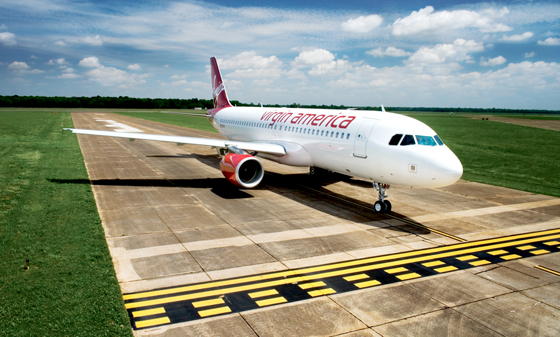For the 25th consecutive year, Wichita State University has led the way in the researching and reporting of the annual Airline Quality Rating (AQR), the nation’s longest running study of airline performance quality.
Results of the 2014 AQR were released today at the National Press Club in Washington, D.C. Virgin America claimed the top spot for the third consecutive year, while overall U.S. airline performance slipped in 2014.
AQR is a joint research project funded as part of faculty research activities at WSU and Embry-Riddle Aeronautical University’s Prescott, Ariz., campus.
No other study in the country is based on performance measures like the AQR, which sets the industry standard, providing consumers and industry watchers a way to compare performance quality among airlines using objective performance-based data.
A big decline
After a best-ever year in overall performance in 2013, only three of 12 U.S. airlines evaluated actually improved this past year. And while one held steady, eight airlines declined.
Overall, the airline industry collectively declined in the AQR’s four core elements of the study: on-time performance, involuntary denied boardings, mishandled baggage and customer complaints.
Behind Virgin America, which has ranked No. 1 three years in a row, was Hawaiian Airlines (up from third in 2013) and Delta (up from fourth in 2013). The other airline that improved in overall performance in 2014 was Southwest, which rose from eighth to sixth place.
The airline industry has performed well in recent years, so a decline is a red flag for consumers, according to the researchers.
Dean Headley, associate professor of marketing at the W. Frank Barton School of Business at Wichita State University, says the weaker overall performance shows that the recent round of mergers means airlines still have work to do to compete for customer loyalty.
“Bigger isn’t always better, and the downturn in performance suggests that customer perceptions of poor outcomes are warranted,” said Headley.
Study co-researcher Brent Bowen, dean of College of Aviation at Embry-Riddle Aeronautical University’s Prescott, Ariz., campus, agreed.
“Airline mergers and consolidations are taking a systemic toll that is bad for consumers,” said Bowen. “Performance by the airlines is slipping while they claimed this would make them better.”
One of the airlines that improved its overall ranking during 2014 was Delta.
“Delta is an excellent example of a merger that declined in performance and systematically has clawed its way back to a new high level of quality performance,” Bowen said. “This shows that if an airline commits to improving their AQR rating, they can do it.”
The AQR score also reflects some of the complexities of an airline industry serving customers in a capacity-limited air travel system.
“When you look at the past 14 years, you find that the airline industry performs most efficiently when the system isn’t stressed by high passenger volume and high number of airplanes in the air,” said Headley. “With continued capacity limits and consolidation, one would hope that a less congested system would perform better. We did not see that in 2014.
“The challenge is whether airline performance quality improvements at this level can be maintained as more people choose to fly. Does the infrastructure and air traffic control technology limit what the airlines can actually do?”
Bowen says the answer to that question and others like it will be sought by researchers and the flying public in the years to come.
“With AQR performance factors in a state of overall decline, it is easy to understand why passengers and many of the airline employees they encounter are not happy and are significantly frustrated,” Bowen said. “With the high profits being realized by airlines, it is evident they are not investing in customer service and restoring employee concessions given up during the economic decline.
“The airlines have a duty to maximize service to the American public given the trust we provided them through a very low regulatory environment.”
Inside this year’s rating
Below is the 2014 numerical ranking of the nation’s leading 12 airlines, according to the Airline Quality Rating, with the 2013 ranking in parentheses:
- Virgin America (1)
- Hawaiian (3)
- Delta (4)
- JetBlue (2)
- Alaska (5)
- Southwest (8) (includes AirTran)
- American (9) (includes USAirways)
- Frontier (11)
- United (12) (includes Continential)
- SkyWest (14)
- ExpressJet (13)
- Envoy/ American Eagle (15)
Virgin America remained No. 1 in 2014. Hawaiian and Delta improved in the rating, to No. 2 and No. 3 respectively. The ranking positions were affected by the consolidation of several airlines, lowering the number of positions available.
An electronic version of the full report, with details on each airline, is available at http://www.airlinequalityrating.com.


 Courtesy
Courtesy